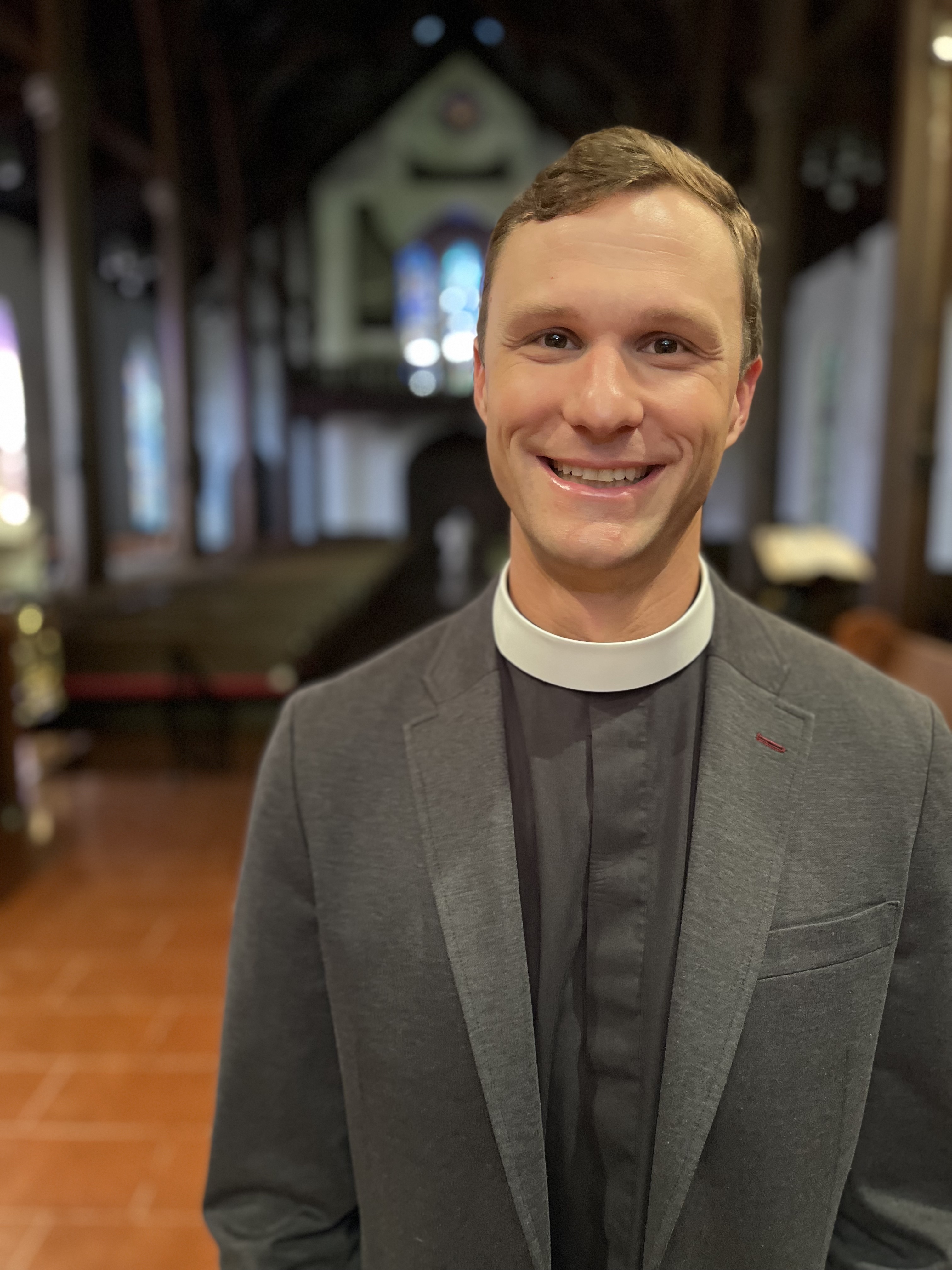Fourth Sunday after the Epiphany
January 30, 2022
I Corinthians 13:1-13
“Love is patient. Love is kind. Love is not envious or boastful or arrogant or rude. Love does not insist on its own way. Love is not irritable or resentful. Love does not rejoice in wrongdoing, but rejoices in the truth.”
Every clergy person and organist in the Episcopal Church must know this passage by heart because it is read at just about every wedding we do. And what a magnificent passage! I think this should go right up there with Shakespeare and Homer as some of the best writing the world has ever known. “Love bears all things, believes all things, hopes all things, endures all things. Love never ends…Faith, hope, and love abide. But the greatest of these is love.” Indeed, how fitting a passage for a wedding; for two people committing themselves to one another and to the Lord God. As they stand together before God, they are reminded that the very thing holding their relationship together is this love; this self-giving, humble, unending love. This is how we often hear these words.
But of course, Saint Paul didn’t have us in mind when he wrote these words. And he surely didn’t have in mind modern weddings with caterers, photographers, and the Pottery Barn gift registry. No, he’s thinking of somebody else. He’s thinking about that little church in Corinth in ancient Greece.
The congregation in Corinth may have only been a handful of people who would gather in someone’s home for worship. The church in Corinth looked more like what we call a small group or a bible study. And oh my goodness they had some issues. Paul starts his letter off with this bit – “Now I appeal to you, brothers and sisters, by the name of our Lord Jesus Christ, that all of you be in agreement and that there be no divisions among you, but that you be united in the same mind and the same purpose” (I Cor. 1:10). Paul wouldn’t have to say “don’t be divided” if they weren’t already divided. See, some of the folks were comparing who baptized them, thinking that the person who did the baptism made them better than others. But it gets worse than that. Apparently one of the church members is getting on with his own step-mother (I Cor. 5:1), if you catch my drift. But it gets worse than that. This congregation is so acrimonious that they are suing each other in court (I Cor. 6). But it gets worse than that. During communion, during their shared meal, some of the people are getting drunk while some don’t get anything at all. But it gets worse than that. Some of the Corinthian Christians are speaking in tongues, and some are not. And the ones that are speaking tongues use that to say that the ones who are not are bad Christians. Things are bad in that little church Corinth. And Saint Paul is fed up.
That’s the spirit of the letter. And so comes this little chapter on love. Like I said, Saint Paul does not have a wedding in mind. He’s got this dysfunctional, incestuous, bickering, carousing, hypocrites of a church in mind. He’s not thinking about a bride walking down the aisle. He’s not thinking about the champagne toast at the reception. He’s thinking about this congregation that is so messed up. Love is patient, love is kind is said with a finger wag. Like, “you need to do better this.” Paul tells them “to put an end to childish things.” Or, as we might say, “stop acting like children and grow up.” Just imagine, just imagine if we heard that at a wedding.
And yet that is exactly what we need to hear. To me, in modern English, love has become too wimpy. I love God, certainly. I love my family, absolutely. But I also love my dog, beef enchiladas, and watching baseball. It just doesn’t to add up. That’s not the kind of love that would compel Jesus to die a on a cross. Love has got to mean something.
That’s what Saint Paul is getting at. Love means not being rude to the waiter who got your order wrong. Love means being patient with the bad driver in front of you. Love means not being envious of your co-worker just got a big raise. Love means not being boastful when you get that big raise. Love means loving that person at church that really annoys you. Love is patient. Love is kind. Love bears all things, love believes all things, love hopes all things. Love endures all things.
Love is exhausting. Love, loving God and loving neighbor, requires something of us. Love is not a feeling, love is something we do. Love means stretching out your arms wide upon the cross, just as the Lord of love did for us.
And that, that is the real wedding going on here. Not a wedding of two people, but a wedding of the Lord God and the People of God. The wedding of Jesus Christ and his Church. The wedding of the Holy Spirit and You. Yes, Saint Paul is pleading with the Christians to live loving, lovely lives. But he’s also making a radical, theological claim. The Lord God, the Holy One enthroned upon the heavens and girded with praise, is the Very One who loves us, dysfunctional though we may be. That One, that King of Kings and Lord of Lords is the One who loves us even to the point of death. We know that love is patient, kind, not envious or boastful or arrogant only because Jesus Christ is patient, and kind, and not envious or boastful or arrogant. Jesus Christ bears all things, believes all things, hopes all things, endures all things. Jesus Christ never ends, nor does his love for us.
This bit from Saint Paul on love is about weddings, sure. It’s about our wedding, our commitment, our life with God. And God’s commitment, God’s covenant with us.
But Saint Paul is not just telling us about God. He is telling us how to live with each other. Imagine those Corinthians, those dysfunctional, incestuous, bickering, carousing, hypocritical Christians. If love can make their lives better, more harmonious, surely love will do the same for us. Now of course I’m not saying that you, the people of Trinity Church are dysfunctional, incestuous, bickering, carousing, or hypocritical. But we, like any church, like any group of humans, have our issues. We have our baggage, we have our bug-a-boos, we have our sins. The cure and the goal of getting ourselves out of the awful messes we put ourselves in is the same – love.
I want to end with this little bit from Saint Paul that often gets looked over. He writes, “For now we see in a mirror, dimly, but then we will see face to face. Now I know only in part; then I will know fully, even as I have been fully known” (I Cor. 13:12). Right now, in this life, everything we see is distorted. How we see God, our neighbors, ourselves is warped. This whole life is like one of those awful carnival mirrors. Our shame, our arrogance, our irritability distort things as they truly are. And I do not know if, in this mortal life, we will ever see things clearly. We see dimly, we know only in part. But God sees clearly, and God knows fully. And somehow, despite the hot mess we are, despite the distortions, despite our lack of love, God loves us.
So this week I have a spiritual challenge for you. This week, at some point, I want you to stand in the front of the mirror and look at yourself. Take a hard look. Take a clear look. Look at the baggage you carry, look at the shame that drags you down, look at all the ways you refuse to love. Look at yourself not as who you wish to be, but as you truly are. And then as you’re staring into your own warped and distorted soul, remember that to God, you are worth loving. You are worth living for. You are worth dying for. This is a wedding day, and God promises to love you, comfort you, honor and keep you, in sickness and in health. God loves you for better for worse, for richer for poorer, in sickness and in health. For you, God will endure all things, bear all things, hope all things. Faith, hope, and love abide. But the greatest of all, is that God loves you.






Leave a comment